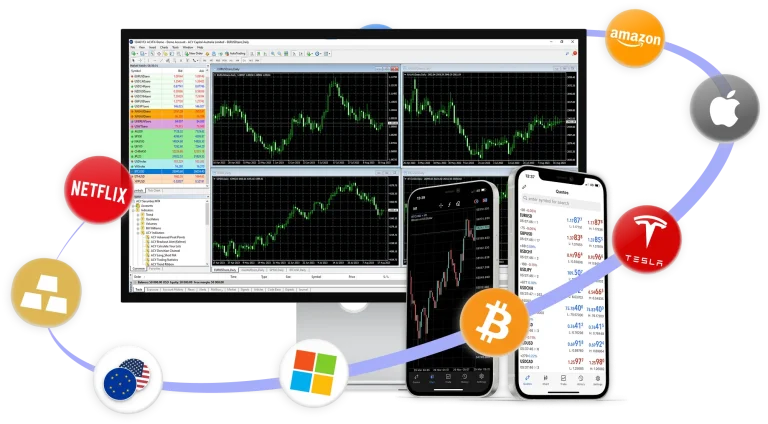The Must-Have Tech Stack for Managing a Global Sales Force

The days of cobbling together disconnected sales tools are over. Modern businesses can’t afford the chaos of managing 12+ separate platforms that barely communicate with each other. Sales operations teams are drowning in integration headaches while revenue targets keep climbing.
According to a study by McKinsey, companies that use AI in sales can increase lead generation and qualification by more than 50% and reduce call time by 60-70% thus reducing costs by up to 60%. The solution? A unified, intelligent approach to global sales force management.
The right tech stack empowers them to work smarter, respond faster, and consistently hit targets, no matter where they are in the world.
Building Your Foundation: Core Sales Technology Infrastructure
Setting up a robust foundation requires more than just picking popular tools. Today’s tech stack for sales demands platforms that can scale across continents while adapting to local market needs.
For instance, Europe’s diverse markets, languages, and regulations make it a uniquely challenging yet rewarding region for global sales teams. Whether your reps are traveling between major hubs like London, Paris, and Berlin or working remotely across borders, seamless connectivity and efficient collaboration are essential.
That’s why having the right tech stack, CRM platforms, cloud-based communication tools, analytics software, and reliable connectivity solutions is non-negotiable. Using the best esim for europe ensures sales teams can stay online without juggling multiple SIM cards or dealing with costly roaming fees, keeping them productive and responsive wherever business takes them.
Customer Relationship Management Systems That Scale Globally
Your CRM isn’t just a database anymore. Modern sales force technology tools serve as the central nervous system for international operations, handling everything from multi-currency transactions to regional compliance requirements.
The best CRM platforms for global teams offer native multi-language support, automated currency conversion, and territory management features that respect local business practices. They integrate seamlessly with local tax systems and provide role-based access controls for different regulatory environments.
Revenue Operations Platforms for Unified Intelligence
Revenue operations platforms bridge the gap between sales, marketing, and customer success teams across time zones. These systems provide real-time pipeline visibility and predictive analytics that help leaders make informed decisions about resource allocation and market expansion.
Advanced platforms offer automated workflow triggers that respect local business hours and cultural preferences, ensuring your global team operates efficiently without stepping on cultural sensitivities.
With robust foundational systems in place, the next critical challenge becomes ensuring seamless communication and collaboration across your distributed sales organization.
Communication Excellence: Connecting Your Global Team
Managing remote sales teams requires more than basic video calls and email threads. Today’s communication challenges demand sophisticated solutions that bridge cultural gaps and time zone differences.
Advanced Collaboration Platforms
Modern collaboration goes beyond screen sharing. AI-powered meeting intelligence platforms automatically transcribe calls in multiple languages, extract action items, and distribute summaries to team members who couldn’t attend live sessions.
These platforms often include cultural adaptation features that adjust communication styles based on regional preferences and provide real-time translation capabilities for truly global conversations.
Sales Enablement Systems for Distributed Teams
Centralized content libraries with regional customization capabilities ensure your team delivers consistent messaging while respecting local market nuances. Mobile-first platforms allow field teams in emerging markets to access training materials and sales collateral regardless of internet connectivity quality.
Interactive training modules can be scheduled to accommodate different learning styles and cultural approaches to professional development.
Effective communication tools set the stage for the next crucial component: generating and managing leads across diverse international markets.
Lead Generation: Global Market Intelligence Systems
Finding quality prospects across international markets requires sophisticated intelligence gathering and cultural understanding that traditional prospecting tools often miss.
AI-Powered Prospecting Tools
Global database integration combined with local market intelligence helps identify prospects who match your ideal customer profile while understanding regional buying behaviors and business customs.
81% of sales leaders say their teams depend on CRMs for automated reporting and better visibility into pipeline health, which streamlines decision-making (https://kapable.club/blog/statistics/sales-leadership-statistics/). Intent data platforms analyze regional online behaviors to surface prospects actively researching solutions, enabling timely outreach that respects cultural communication preferences.
Account-Based Marketing Platforms
Enterprise ABM platforms orchestrate multi-market campaigns while maintaining compliance with local data protection regulations like GDPR and CCPA. These systems enable personalized messaging that adapts to cultural contexts while maintaining brand consistency.
Cross-cultural messaging features ensure your value propositions resonate across different business cultures without losing their core impact.
Strong lead generation capabilities naturally flow into the need for streamlined processes that can adapt to various regional business practices and regulatory requirements.
Process Automation: Streamlining Global Workflows
Best sales management software today focuses on automating repetitive tasks while preserving the human elements that matter most in relationship-based selling.
Workflow Automation That Adapts Locally
Smart automation platforms learn from regional business practices and adjust approval processes accordingly. Multi-currency commission calculations handle complex tax implications while maintaining accuracy across different regulatory frameworks.
These systems respect local holidays and business hours, ensuring automated sequences don’t send messages during inappropriate times in different regions.
Quote-to-Cash Solutions
International transactions require sophisticated pricing engines that handle regional discounting strategies and local payment preferences. Contract management features ensure compliance with diverse legal requirements while maintaining standardized approval workflows.
Integration with local banking systems and payment processors provides customers with familiar, trusted payment options that reduce friction in the buying process.
Streamlined processes enable better data collection, which becomes the foundation for meaningful analytics and performance insights across your global operation.
Analytics and Performance: Data-Driven Global Insights
Raw data means nothing without proper analysis. Modern analytics platforms transform scattered information into actionable insights that drive better decisions across all markets.
Cross-Regional Performance Analytics
Advanced analytics platforms provide benchmarking capabilities that account for market maturity differences and cultural factors affecting sales cycles. Predictive modeling helps identify expansion opportunities while considering local economic conditions and competitive landscapes.
Real-time coaching recommendations adapt to cultural communication styles and regional business practices, ensuring feedback resonates with team members regardless of their location.
Conversation Intelligence Systems
Multi-language call analysis provides insights into regional communication patterns and helps identify what messaging works best in different cultural contexts. Sentiment analysis tools account for cultural differences in expression and communication styles.
These systems help sales leaders understand which approaches drive results in specific markets while maintaining sensitivity to local business customs.
Comprehensive analytics capabilities support the final critical component of your tech stack: seamless integration that eliminates the complexity plaguing traditional sales operations.
Integration: Creating a Seamless Technology Ecosystem
The best technology becomes worthless if it can’t work together effectively. Modern integration platforms eliminate the fragmentation that has plagued sales teams for years.
API Management Solutions
No-code integration platforms enable rapid deployment of new tools without extensive technical resources. Automated data synchronization ensures information flows smoothly between systems while respecting regional data residency requirements.
These platforms handle complex workflows that span multiple time zones and accommodate local business practices without requiring constant manual oversight.
Territory Management Automation
Dynamic territory optimization considers market potential, rep capacity, and cultural factors when assigning leads and accounts. Automated routing systems respect language preferences and time zone considerations while maintaining fair distribution.
Performance tracking systems provide cultural context for regional differences in sales approaches and success metrics.
Final Thoughts on Global Sales Technology
Building an effective global sales tech stack is about having the right tools that work together intelligently. The organizations winning in international markets are those that’ve moved beyond fragmented point solutions to integrated platforms that respect cultural differences while maintaining operational efficiency.
Success comes from balancing standardization with localization, ensuring your technology enhances rather than complicates your team’s ability to build relationships across borders. The future belongs to sales leaders who view technology as a cultural bridge, not just a productivity tool.
Common Questions About Global Sales Technology
What’s the biggest challenge when implementing global sales tech?
Data compliance across multiple jurisdictions while maintaining a seamless user experience. Different privacy laws and business practices require careful planning and flexible platform selection.
How do you measure ROI on global sales technology investments?
Track region-specific metrics like local adoption rates, cultural engagement scores, and territory-specific conversion improvements rather than just overall revenue numbers for accurate assessment.
Which technologies are essential for global sales teams?
Multi-language CRM with local compliance features, real-time communication platforms, and analytics tools that account for cultural differences in sales approaches and customer behavior.
How do you handle different time zones in sales technology deployment?
Choose platforms with automated scheduling that respect local business hours, asynchronous collaboration features, and notification systems that adapt to regional preferences and working patterns.






